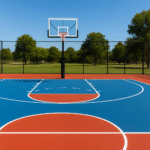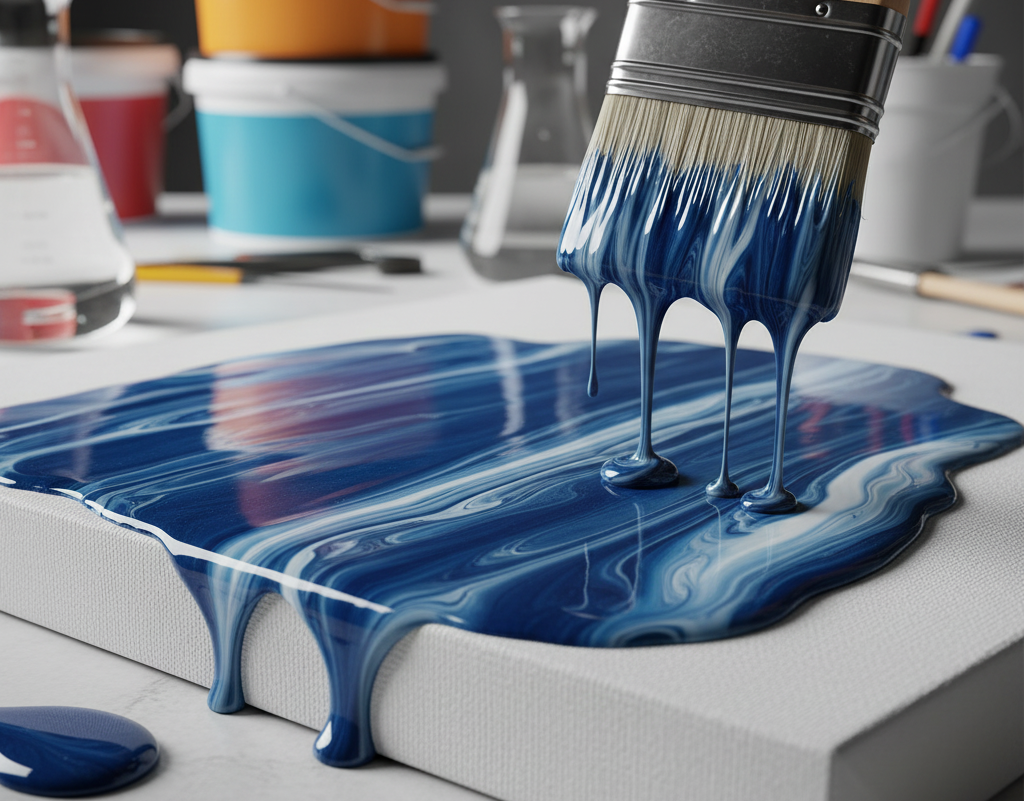Introduction
Synthetic Acrylic Coating Manufacturer have revolutionized the world of surface protection. If you’ve ever wondered how buildings maintain their vibrant colors and resist wear over time, acrylic coatings are often the secret. These coatings are not just about aesthetics—they are about durability, protection, and long-term performance.
Unlike traditional paints, synthetic acrylic coatings are designed to provide superior adhesion, UV resistance, and flexibility. Whether for residential buildings, industrial warehouses, or commercial complexes, these coatings are a go-to solution for architects, engineers, and contractors alike.
History and Evolution
The journey of synthetic acrylic coatings began in the mid-20th century. Traditional coatings, while effective, often lacked durability and faded quickly under sunlight. The development of synthetic acrylic polymers changed everything. These coatings offered resilience against harsh weather conditions, chemical resistance, and a longer lifespan.
Over the years, technological advancements have introduced water-based and solvent-based options, allowing manufacturers to tailor coatings for specific applications. Today, synthetic acrylic coatings are at the forefront of innovative surface protection.
Types of Synthetic Acrylic Coatings
Water-Based Acrylic Coatings
Water-based acrylic coatings are environmentally friendly, low in VOCs (volatile organic compounds), and easy to clean. They dry quickly and are ideal for indoor applications or areas requiring minimal odor during application.
Solvent-Based Acrylic Coatings
Solvent-based coatings offer superior adhesion and chemical resistance. These are preferred for industrial applications where surfaces are exposed to harsh chemicals or extreme weather conditions.
Specialty Coatings
From anti-slip coatings for sports courts to self-cleaning surfaces, specialty synthetic acrylic coatings are designed for niche applications, often incorporating nanotechnology or other innovations.
Key Ingredients and Composition
The performance of synthetic acrylic coatings depends on their composition:
- Acrylic Polymers: Provide flexibility, adhesion, and durability.
- Additives and Fillers: Enhance texture, resistance, and workability.
- Pigments and Dyes: Offer color and UV protection, ensuring vibrant finishes.
Synthetic Acrylic Coating Manufacturer Process
Raw Material Selection
High-quality raw materials are crucial. Manufacturers carefully select acrylic polymers, solvents, and additives to ensure consistency and performance.
Mixing and Emulsion Formation
Ingredients are blended into a uniform emulsion. Precise mixing techniques ensure that pigments are evenly distributed and the coating maintains its properties.
Quality Control Measures
Stringent quality checks are performed at every stage, from raw material testing to final product evaluation. This ensures the coating meets industry standards and customer expectations.
Advantages of Synthetic Acrylic Coating Manufacturer
- Durability and Longevity: Resistant to cracking, peeling, and fading.
- UV Resistance: Protects surfaces from sun damage and color deterioration.
- Cost-Effectiveness: Long-lasting performance reduces maintenance costs.
Applications in Different Industries
Construction and Architecture
Used on walls, ceilings, facades, and decorative elements to enhance aesthetics and protection.
Automotive and Transportation
Provides corrosion resistance, a glossy finish, and protection against environmental factors.
Industrial Equipment Coatings
Applied to machinery and equipment to prevent wear, rust, and chemical damage.
Environmental Impact
Modern manufacturers are creating eco-friendly acrylic coatings. Water-based formulations reduce VOC emissions, and many coatings comply with global environmental regulations. Additionally, recycling initiatives are emerging to minimize waste.
Choosing the Right Manufacturer
Selecting a reliable manufacturer is critical. Consider:
- Reputation and Experience: Long-standing manufacturers often deliver higher quality.
- Product Range and Customization: Ability to provide coatings for diverse applications.
- Certifications and Compliance: Ensures adherence to industry standards.
Technological Innovations
- Nanotechnology in Acrylic Coatings: Improves scratch resistance, water repellence, and durability.
- Smart Coatings: Self-cleaning and anti-bacterial surfaces are gaining popularity.
Maintenance and Longevity Tips
- Surface Preparation: Ensure surfaces are clean and primed before coating.
- Application Techniques: Use brushes, rollers, or spray equipment as recommended.
- Regular Inspection: Timely repairs prevent long-term damage and maintain appearance.
Cost Analysis
Though synthetic acrylic coatings may have a higher upfront cost, they are an investment. Their longevity, low maintenance, and protective qualities offer better value than cheaper alternatives.
Case Studies
Commercial Projects
Many high-rise buildings and shopping complexes have relied on acrylic coatings for vibrant facades and weather protection.
Residential Applications
Homeowners prefer acrylic coatings for long-lasting colors, easy maintenance, and protection from humidity and UV exposure.
Common Challenges
- Application Errors: Poor surface preparation can lead to peeling or uneven finishes.
- Environmental Factors: Extreme temperatures or humidity affect curing.
- Supply Chain Issues: Availability of quality raw materials can impact production.
Conclusion
Synthetic acrylic coatings are a blend of science and art. They provide durability, protection, and aesthetic appeal, making them essential for modern construction and industrial applications. With technological advancements, eco-friendly options, and customization, choosing the right manufacturer ensures long-term satisfaction.
FAQs
- What surfaces can be coated with synthetic acrylic coatings?
Acrylic coatings can be applied to concrete, wood, metal, and masonry surfaces. - How long does acrylic coating last?
Depending on quality and maintenance, it can last 8–15 years or more. - Are synthetic acrylic coatings eco-friendly?
Water-based formulations are environmentally friendly and low in VOCs. - Can I apply synthetic acrylic coatings myself?
Yes, for small projects, but professional application ensures the best results. - How to choose the best manufacturer?
Look for experience, product range, certifications, and customer reviews.





